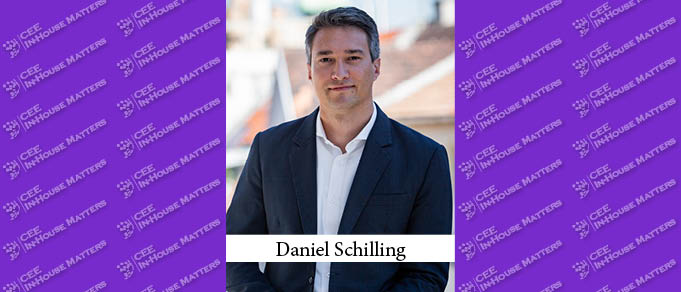On September 9, 2020, CEE Legal Matters reported that the Kapolyi Law Firm had advised Duna House, a property brokerage group in Central and Eastern Europe, on its participation in the National Bank of Hungary's Growth Bond Program. CEEIHM spoke with Duna House Chief Financial Officer Daniel Schilling to learn more.
CEEIHM: To give our readers a bit of background, tell us a few words about Duna House.
Daniel: We are present in Hungary, Poland, and the Czech Republic. We are the largest residential real estate brokers in the region and also one of the largest loan brokers in the region (we are number 1 in Hungary, and 5th-largest-but-growing in Poland).
The company was founded in Hungary 21 years ago by two brothers who are currently still the largest owners in the company. Our focus was Hungary at first, then we entered the Czech Republic in 2010, but the major step to international markets came in 2016 when, towards the beginning of the year, we entered Poland through our acquisition of Metrohouse, the largest real estate broker in Poland. Our growth in Poland then continued with two other acquisitions of loan brokers in the country — one in November 2018 and one in January 2020. At this point, Poland is already the largest market for us in terms of revenue numbers. It is not as profitable as our Hungarian operations but profitability there is growing fast.
CEEIHM: What is the "National Bank of Hungary's Growth Bond Program" and why did Duna House decide to participate in it?
Daniel: This is run by the National Bank of Hungary with the aim to create a corporate bond market in the country. So far there have been a couple of issuers who managed to issue corporate bonds and the National Bank aims to widen the range of companies involved in that market. There is almost EUR 1.3 billion available to finance such bond issuances with the National Bank also committing to buying up to 50% of the total proceeds as long as companies find investors for the rest. If you don’t have any investors you don’t have your bond issuance. Beyond that, each company aiming to go through this program has to go through a credit rating and have it set at least B+ in order to participate.
We considered this particular program for a long time and decided at the beginning of this year that we need additional financing, mainly to finance future acquisitions. We looked at alternatives, but the incentive of the National Bank made this program quite attractive for issuers who are not afraid of the process and the transparency needed. Sure, as an issuer you have a higher interest rate than through a traditional bank financing but you don’t have the same restrictions on what you can do as a company and collateral needed — so the bottom line for us was to go for a slightly higher cost but remaining more flexible.
CEEIHM: What is the capital you raised intended for? What can we expect next from Duna House?
Daniel: We started our M&A-driven expansion back in 2016. When we had our IPO in November 2016, we promised we would continue to grow, not only organically but also via acquisitions. We have multiple negotiations ongoing and we are hoping we’ll be able to announce a deal in the relatively new future. The amount that we secured would actually allow us to finance two more acquisitions and we are looking to expand into new markets. Our goal is to further develop our position into a leading role in the region. For that, we would like to continue our M&A strategy and approximately 60% of the new funds will go towards this push. The rest will be used to refinance our existing loans.
CEEIHM: What would you say was the most complex aspect of the issuance? Any unforeseen challenges along the way, and, if yes, how did you overcome them?
Daniel: I have to say that it was a pretty smooth process. The whole bond issuance involves following very strict procedures and those restrictions applied even more since we are a publicly-listed company. I think the previous IPO helped. We knew how to prepare the prospectus and what to expect. We received excellent support from our legal advisors and from OTP, our arranger. One challenging aspect for us was that the bulk of the work behind this happened during the summer period. The bond auction was on August 31, 2020, which is not within your typical transaction-window. Because of the holiday season, it was sometimes challenging to sync everyone up and even investors had a hard time driving the deal through their internal approval processes. We were under a time pressure to secure these funds as soon as possible so that, in our ongoing negotiations with potential sellers, we could prove that we have the financing needed to conclude the transactions. It worked out very well at the end, the results exceeded our expectations.
CEEIHM: Why did you turn to the Kapolyi Law Firm for advice on this issuance, and what did they advise on specifically?
Daniel: They worked for us as a fully-fledged advisor, assisting in structuring the bond, preparing the prospectus, and handling regulatory discussions. We had a thorough procurement process. We invited five law firms to bid for the mandate. We never worked with Kapolyi before, but they have a good reputation and we needed someone who has particular experience in this particular type of the bond program of the National Bank and who worked in this program with a publicly-listed company. We needed a legal team that understood the challenges of that particular set of limitations. Plus it seemed they were keen to work with us as well as they put forward quite an attractive offer in terms of price.


